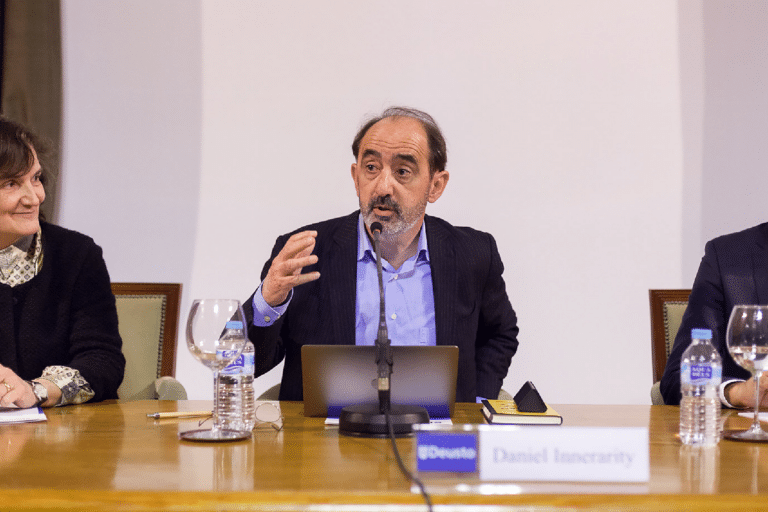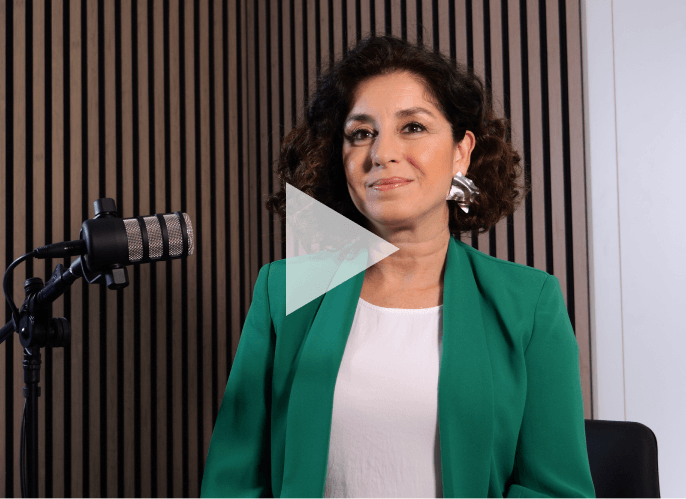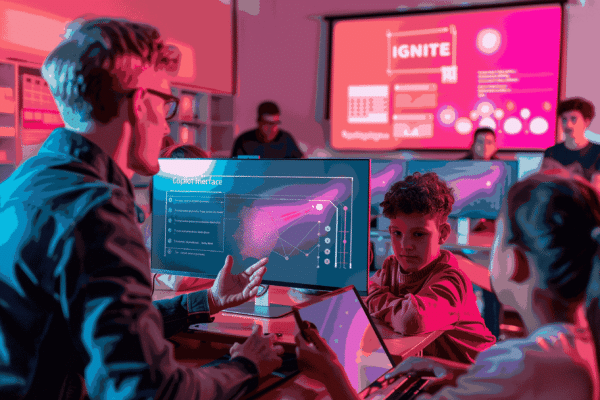At the recent EdTech Congress, philosopher Daniel Innerarity presented his thoughts on the impact of artificial intelligence (AI) on education and democracy. In his talk, Innerarity emphasized that while AI is a powerful tool for managing data and recognizing patterns, it lacks the capacity for human reflection and awareness. "Artificial intelligence will not be able to think for you," Innerarity said, emphasizing the need to redefine the concept of intelligence in the digital age.
The philosopher explained to the UOC that true intelligence involves a combination of knowledge, judgment and creativity, skills that AI cannot yet emulate. According to Innerarity, education must adapt to prepare students to work in synergy with AI and use their skills to foster critical thinking and innovation.
Innerarity asserts that "since the 1950s" when AI emerged as a technological definition, "we have had two problems: the overunderstanding that this technology is intelligent in the sense that we are intelligent, and the understanding that it is artificial in the sense of something ethereal," but for the philosopher, "it is a very dirty technology that consumes a lot of energy, produces a lot of waste, and has more people working in it than the artificial name implies."
In a report published by UNESCO, Innerarity expands on his analysis of the impact of AI on democracy. The paper, entitled "Artificial Intelligence and Democracy"," looks at the challenges and opportunities that AI presents for democratic systems. Innerarity notes that AI is changing the rules of markets, societies and political systems and requires the implementation of effective rules to ensure a positive and equitable impact.
In terms of what AI can do, Innerarity asserts that it "does things very well", always assuming that this technology will not be able to outperform humans. But as for the use of AI in recent times, the author of Democratic Freedom (2023) that it would be useful "in any inaugural speech where a mayor has five to ten minutes to say a few words, there's no great intellectual contribution, so surely that can be done by an AI."
He also reminds us that "you have to think of technology as a story of the intertwining of humans and machines, a story in which we are now writing a new chapter, with a particularly powerful and fascinating technology."
Democratic conversation
Democracy requires a good social conversation and a stable public space, says Innerarity. However, the digital environment has brought significant challenges, such as the spread of fake news and hate speech. Innerarity emphasizes that the technological infrastructure of democracy needs to be improved to promote a more inclusive and responsible dialog.
The politics of big data and the proliferation of automated decision-making systems pose new challenges to democracy. Innerarity argues that algorithmic governance can be useful for some tasks, but insists that the final decision must rest with the people, the holders of sovereignty. Transparency and accountability are essential to maintain democratic legitimacy.
The report concludes with a series of recommendations to ensure that AI makes a positive contribution to democracy. Among others, it emphasizes the importance of education and awareness, appropriate regulation and legislation, and transparency in AI systems. Innerarity calls on UNESCO member states to work together to develop a global regulatory framework to ensure the ethical and democratic use of AI.
Education
Innerarity also mentions how education and the student body have changed since he started teaching at college. "For 80% of the time I was teaching information and the rest of the time I was offering an interpretive key" and over time this methodology has changed and now "we are no longer competing with Google because it has more data than we do, but we are offering tools to survive the accessibility of information".
With the advent of AI in the classroom and in society, "we are all faced with the challenge of redefining what 'intelligent' means" and raises a question we need to ask ourselves: "Can a machine do it better than me? If a machine can do it better, cheaper and just as well, we are lost"
Mastering Copilot for business efficiency
But at this point, Innerarity offers a second perspective with a different question: "What can my contribution be? Because AI works when we help it or guide it".
And finally, he reminds us that we need to make a good distinction between "tasks that we can and should get rid of and the contributions that humans can make in a meaningful way".







